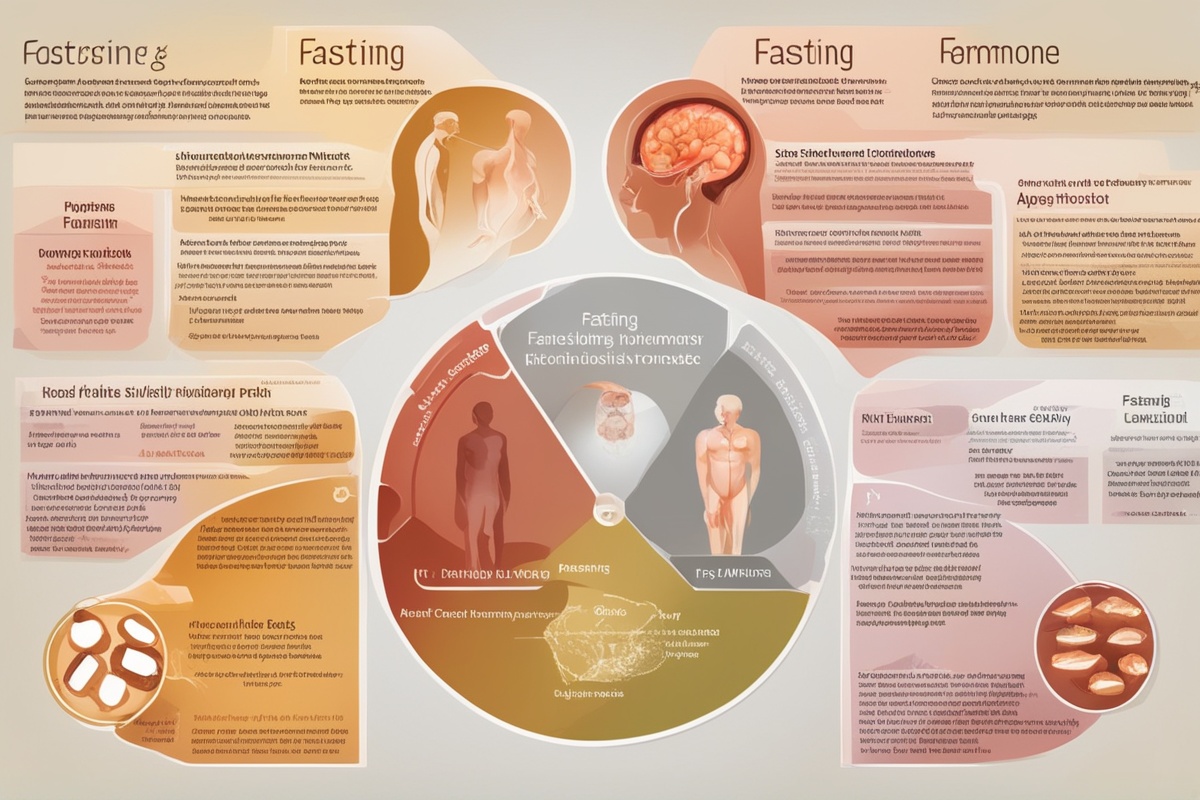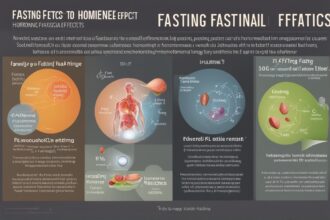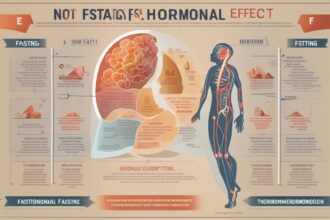Have you ever wondered how fasting could do more than just help with weight loss? Beyond shedding a few pounds, fasting—especially intermittent fasting—has profound effects on your body’s hormonal balance. The fasting hormonal benefits are gaining attention in the health and wellness world, with research showing how this practice can optimize hormones like insulin, cortisol, and growth hormone. In this post, we’ll dive deep into how fasting influences your hormones, why it matters for your overall well-being, and how you can harness these benefits with practical tips. Whether you’re a fasting newbie or a seasoned pro, let’s explore the science and real-life impacts of hormonal regulation through fasting.
What Are the fasting Hormonal Benefits?
When you fast, your body undergoes a fascinating transformation at the hormonal level. Fasting, particularly intermittent fasting (IF), triggers a cascade of changes that can improve metabolic health and energy balance. The fasting hormonal benefits aren’t just a buzzword—they’re backed by science. By giving your digestive system a break, fasting allows your body to shift its focus from processing food to repairing cells and regulating hormones. This can lead to improved insulin sensitivity, reduced stress hormones, and even enhanced fat-burning mechanisms. Let’s break down the key hormones affected by fasting and how these shifts benefit your health.
How Fasting Impacts Insulin and Blood Sugar Control
One of the most well-known fasting hormonal benefits is its effect on insulin, the hormone responsible for managing blood sugar levels. When you eat, insulin spikes to shuttle glucose into cells for energy. However, constant snacking or overeating can lead to insulin resistance, a precursor to type 2 diabetes. Fasting helps by lowering insulin levels during the fasting window, allowing your body to tap into stored fat for energy. Studies show that intermittent fasting can improve insulin sensitivity by up to 31% in some individuals, making it a powerful tool for metabolic health. If you’re looking to balance blood sugar, incorporating fasting into your routine could be a game-changer.
The Role of Growth Hormone in Fasting
Did you know that fasting can naturally boost your body’s production of growth hormone (GH)? This hormone, often associated with muscle growth and anti-aging, spikes during fasting periods—sometimes by as much as fivefold, according to research. The fasting hormonal benefits related to GH include improved fat metabolism, muscle preservation, and cellular repair. During fasting, your body prioritizes these processes over digestion, which is why many people report feeling sharper and more energized after a fast. To maximize this benefit, consider longer fasting windows (like 16:8 or 18:6) a few times a week, ensuring you’re still meeting your nutritional needs during eating periods.
Cortisol and Stress: Finding Balance Through Fasting
Cortisol, often dubbed the “stress hormone,” plays a dual role in fasting. In the short term, fasting can slightly elevate cortisol levels as your body adapts to the lack of immediate energy from food. However, over time, the fasting hormonal benefits include a potential reduction in chronic cortisol spikes, especially when paired with a consistent fasting schedule. High cortisol is linked to weight gain, anxiety, and poor sleep, so finding balance is key. To manage cortisol during fasting, avoid over-stressing your body with excessive fasting durations right away. Start slow, stay hydrated, and listen to your body’s signals.
Fasting and Appetite Hormones: Ghrelin and Leptin
Ever notice how fasting can sometimes make you feel less hungry over time? That’s thanks to its impact on appetite-regulating hormones like ghrelin (the “hunger hormone”) and leptin (the “satiety hormone”). Initially, ghrelin may spike, making you feel hungry during a fast. But as your body adjusts, fasting can help recalibrate these hormones, improving leptin sensitivity and reducing unnecessary hunger cues. This is one of the standout fasting hormonal effects for weight management. To support this balance, focus on nutrient-dense meals during eating windows to keep leptin signaling strong.
Practical Tips to Maximize Fasting Hormonal Benefits
Now that we’ve covered the science behind fasting hormonal benefits, let’s talk about how to put this into action. Fasting isn’t a one-size-fits-all approach, and optimizing its effects on hormones requires a bit of strategy. Here are some practical tips to help you get started and sustain a fasting routine that supports hormonal health:
- Start with a beginner-friendly fasting method: Try the 12:12 method (12 hours fasting, 12 hours eating) before progressing to 16:8 to ease your body into hormonal shifts.
- Prioritize hydration: Drink plenty of water during fasting windows to support metabolic processes and keep cortisol in check.
- Eat balanced meals: Focus on protein, healthy fats, and fiber during eating windows to stabilize blood sugar and support insulin sensitivity.
- Avoid over-fasting: Excessive fasting can stress your body and disrupt hormonal balance, so stick to a sustainable schedule.
- Get enough sleep: Poor sleep can negate fasting’s hormonal benefits by spiking cortisol, so aim for 7–9 hours nightly.
Potential Challenges and How to Overcome Them
While the fasting hormonal benefits are impressive, it’s not always smooth sailing. Some people experience challenges like fatigue, irritability, or intense hunger when starting a fasting routine. These issues often stem from hormonal adjustments as your body adapts. Here’s how to navigate common hurdles and keep your fasting journey on track:
- Combat fatigue with electrolytes: Add a pinch of salt to your water or sip on bone broth during fasting to replenish minerals.
- Manage hunger pangs: Drink black coffee or herbal tea to suppress appetite and distract from ghrelin spikes.
- Ease irritability: Practice mindfulness or light stretching to reduce stress and lower cortisol levels.
- Adjust fasting windows: If a strict schedule feels too hard, be flexible—try a shorter fast on tougher days.
In wrapping up, the fasting hormonal benefits offer a compelling reason to give intermittent fasting a try. From balancing insulin and boosting growth hormone to fine-tuning appetite signals, fasting can be a powerful tool for optimizing your body’s natural rhythms. The science is clear: when done thoughtfully, fasting supports metabolic health, reduces stress markers, and enhances overall vitality. That said, it’s important to approach fasting with balance—listen to your body, start slowly, and prioritize nutrition during eating windows. By integrating these fasting hormonal effects into your lifestyle, you’re not just cutting calories; you’re investing in long-term hormonal harmony. So, why not experiment with a fasting schedule that works for you and see how your body responds? Share your experiences or questions below—I’d love to hear how fasting has impacted your health journey!






